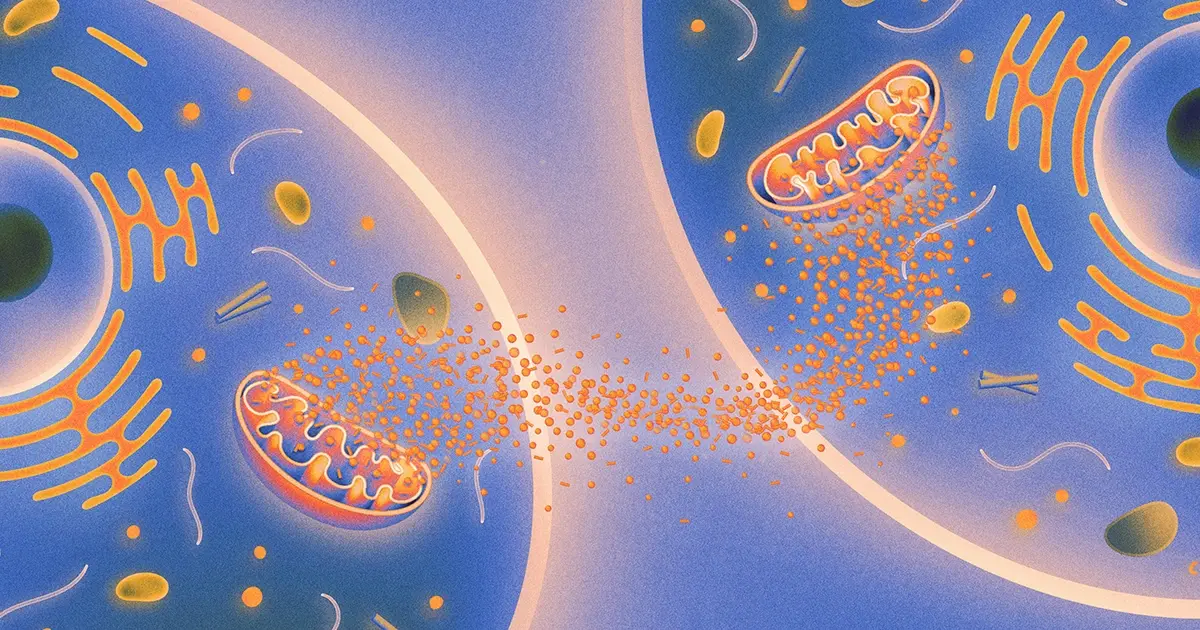- cross-posted to:
- [email protected]
- cross-posted to:
- [email protected]
Aging can seem like an unregulated process: As time marches along, our cells and bodies inevitably accumulate dings and dents that cause dysfunctions, failures and ultimately death. However, in 1993 a discovery upended that interpretation of events. Researchers found a mutation in a single gene that doubled a worm’s life span; subsequent work showed that related genes, all involved in the response to insulin, are key regulators of aging in a host of animals, from worms and flies to humans. The discovery suggested that aging is not a random process — indeed, specific genes regulate it — and opened the door to further research into how aging proceeds at a molecular level.
Recently, a set of papers documented a new biochemical pathway that regulates aging, one based on signals passed between mitochondria, the organelles best known as the powerhouse of the cell. Working with worms, the researchers found that damage to mitochondria in brain cells triggered a repair response that was then amplified, setting off similar reactions in mitochondria throughout the worm’s body. The effect of this repair activity was to extend the organism’s life span: The worms with repaired mitochondrial damage lived 50% longer.
What’s more, cells in the germline — the cells that produce eggs and sperm — were central to this anti-aging communication system. It’s a finding that adds new dimensions to the fertility concerns implied when people talk about aging and their “biological clock.” Some of the findings were reported in Science Advances and others were posted on the scientific preprint server biorxiv.org in the fall.
Oh, to be 20 and seeing articles like this popping up. Hopefully this type of research gives you some more of your incredibly short time in this universe back to you if you want it.
I’m 40. Can I have some more of that time too?
I’m a millennial, I’ve seen enough, ty.
But please don’t let capitalism force me to be alive longer just so I can work (ultimately meaningless tasks) longer.
Its right around that time in your 20s when you experience your first existential crisis. You can’t sleep for an entire day because you have the realization that one day you won’t exist…and there’s nothing you can do about it.
spoiler
For those that my statement above may have just triggered an existential crisis, take comfort that what lies after our death for our consciousness is identical to what came before our birth. Revel in life as you have it right now! Your mere existence is a natural miracle of atoms joining together for a short time and recognize they exist before they return to those scattered atoms that existed before you did.
Science and nature is so great & fascinating!
Tho I can’t but worry about 8bn (up to peak 12bn as most projectios currently show) humans living way over our means (sustainable levels of resources) … but now for even longer.



